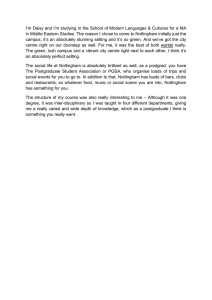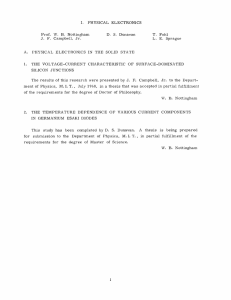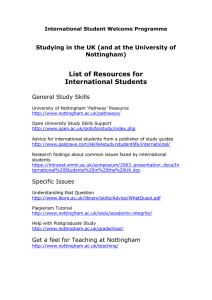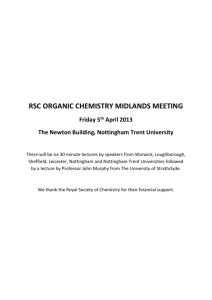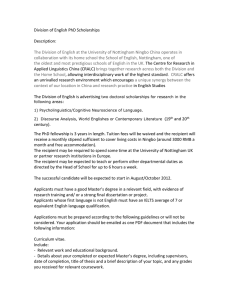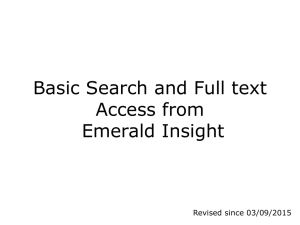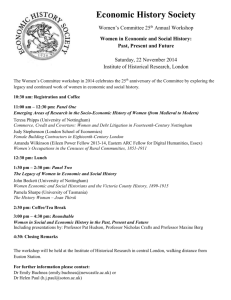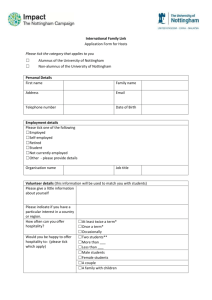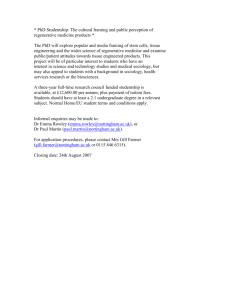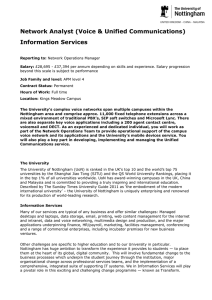Records Management Policy Statement
advertisement
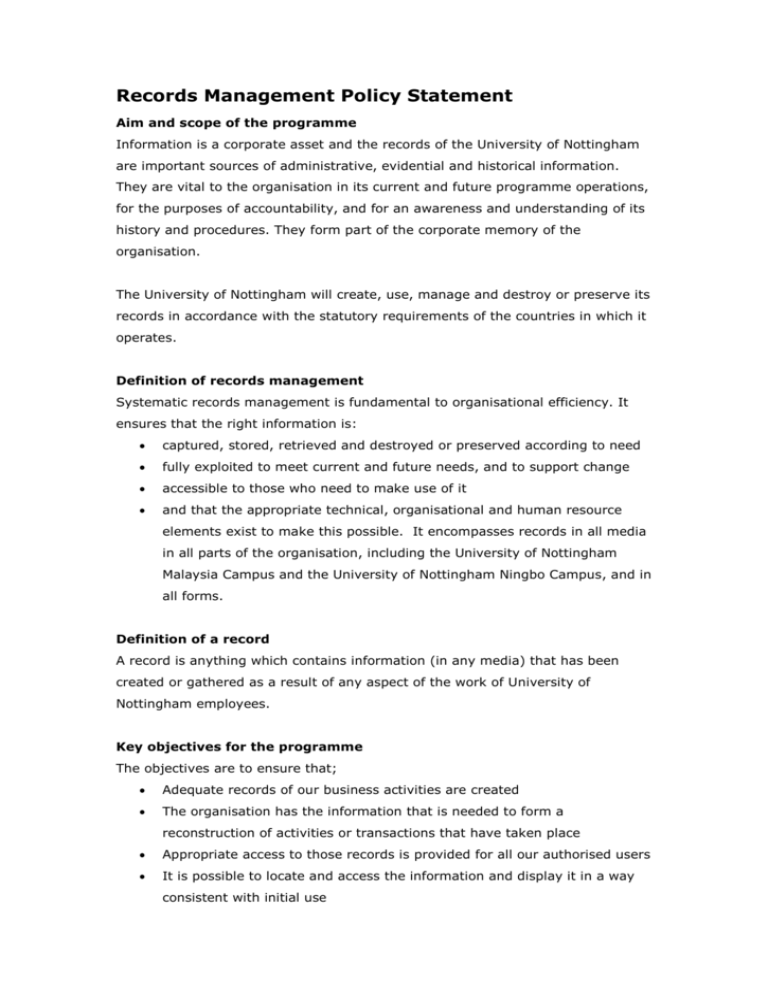
Records Management Policy Statement Aim and scope of the programme Information is a corporate asset and the records of the University of Nottingham are important sources of administrative, evidential and historical information. They are vital to the organisation in its current and future programme operations, for the purposes of accountability, and for an awareness and understanding of its history and procedures. They form part of the corporate memory of the organisation. The University of Nottingham will create, use, manage and destroy or preserve its records in accordance with the statutory requirements of the countries in which it operates. Definition of records management Systematic records management is fundamental to organisational efficiency. It ensures that the right information is: captured, stored, retrieved and destroyed or preserved according to need fully exploited to meet current and future needs, and to support change accessible to those who need to make use of it and that the appropriate technical, organisational and human resource elements exist to make this possible. It encompasses records in all media in all parts of the organisation, including the University of Nottingham Malaysia Campus and the University of Nottingham Ningbo Campus, and in all forms. Definition of a record A record is anything which contains information (in any media) that has been created or gathered as a result of any aspect of the work of University of Nottingham employees. Key objectives for the programme The objectives are to ensure that; Adequate records of our business activities are created The organisation has the information that is needed to form a reconstruction of activities or transactions that have taken place Appropriate access to those records is provided for all our authorised users It is possible to locate and access the information and display it in a way consistent with initial use The record can be interpreted It is possible to establish the context of the record: who created the document, during which business process, and how the record is related to other records The record can be trusted The record reliably represents the information that was actually used in or created by the business process, and its integrity and authenticity can be demonstrated The record can be maintained through time The qualities of accessibility, interpretation and trustworthiness can be maintained for as long as the record is needed, perhaps permanently, despite changes of formats Records required for business, accountability or cultural purposes are retained and remain useable for as long as they are needed Records of long term value are identified and preserved as archives Other records are confidentially destroyed when no longer required Statement of responsibilities for Records Management The Registrar has a duty to ensure that the University of Nottingham implements the requirements of legislation affecting management of the records, and with supporting regulations and codes. The Academic Administration Manager is responsible for providing advice and guidance Heads of School and administrative areas have day to day responsibility for records management in their areas All staff are accountable to their supervisors for compliance with this policy and with related policies, standards and guidance. Outline of the legislative and regulatory framework in the UK Limitation Act 1980 Data Protection Act 1998 Freedom of Information Act 2000 & the Lord Chancellor’s Code of Practice on the Management of Records under Freedom of Information References to specific policies and other more detailed documentation Policies for: Retention schedules
